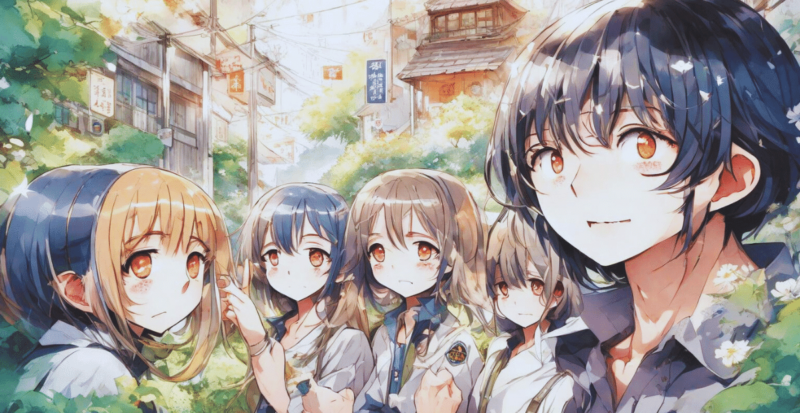“Komik Hisashiburi Ni Jikka Ni Kaettara Otouto Ga TS Shiteta” is one such phrase that has intrigued both native speakers and enthusiasts of Japanese culture worldwide. This article delves into the intricacies of this enigmatic expression, exploring its origins, significance, and cultural impact.
Understanding the Phrase
“Komik Hisashiburi Ni Jikka Ni Kaettara Otouto Ga TS Shiteta” is a Japanese phrase that translates to “When I returned home after a long time, my younger brother had become a man.” At first glance, it appears to convey a simple observation, but beneath the surface lies a deeper narrative about the passage of time, familial relationships, and personal growth.
Context of the Phrase Komik Hisashiburi
Cultural Background
The phrase originates from the rich tapestry of Japanese familial values and traditions. In Japanese society, familial ties hold immense significance, with respect for elders and reverence for family hierarchy deeply ingrained in cultural norms.
Linguistic Analysis
Linguistically, the phrase showcases the complexity and nuance of the Japanese language. The use of honorifics and subtle nuances in expression add layers of meaning, reflecting the depth of Japanese communication.
Common Usage Scenarios
“Komik Hisashiburi Ni Jikka Ni Kaettara Otouto Ga TS Shiteta” is often used in various contexts, ranging from personal anecdotes to literary works and media representations. It encapsulates the bittersweet realization of change and transformation, resonating with individuals who have experienced the passage of time and its effects on relationships.
Significance in Japanese Culture
Within Japanese culture, the phrase holds profound significance, symbolizing the inevitable march of time and the evolution of familial bonds. It evokes nostalgia while acknowledging the inevitability of change, reflecting the cyclical nature of life itself.
Variations and Adaptations
Over time, “Komik Hisashiburi Ni Jikka Ni Kaettara Otouto Ga TS Shiteta” has undergone variations and adaptations in different cultural contexts. Its essence remains intact, but interpretations may vary based on individual experiences and societal norms.
Exploring the Meaning Behind the Phrase
At its core, the phrase delves into themes of growth, maturation, and the passage of time. It prompts introspection and reflection, inviting individuals to ponder their journey of self-discovery and personal development.
Impact on Japanese Society
The phrase has left an indelible mark on Japanese society, influencing cultural narratives, literary works, and artistic expressions. It serves as a poignant reminder of the transient nature of existence and the importance of cherishing moments of connection and understanding.
Historical Evolution
Tracing the historical evolution of “Komik Hisashiburi Ni Jikka Ni Kaettara Otouto Ga TS Shiteta” reveals its roots in ancient Japanese folklore and oral traditions. Through the ages, it has evolved alongside societal changes, adapting to reflect shifting values and perspectives.
Popularity in Modern Media
In contemporary Japanese media, the phrase continues to resonate with audiences, appearing in films, television shows, and literature. Its timeless appeal lies in its universal themes of love, loss, and the passage of time.
Cultural References in Literature and Art

From classic literature to modern art, “Komik Hisashiburi Ni Jikka Ni Kaettara Otouto Ga TS Shiteta” has inspired countless creative works, serving as a source of inspiration for artists, writers, and poets alike. Its poetic resonance transcends linguistic barriers, touching hearts across cultures.
Critiques and Controversies
Despite its widespread acclaim, the phrase has faced critiques and controversies, with some arguing that it perpetuates traditional gender roles and stereotypes. However, others view it as a poignant commentary on the complexities of family dynamics and personal growth.
Cross-Cultural Interpretations
Outside of Japan, “Komik Hisashiburi Ni Jikka Ni Kaettara Otouto Ga TS Shiteta” has sparked cross-cultural interpretations, resonating with individuals from diverse backgrounds who relate to its themes of change and transition. Its universal appeal transcends linguistic and cultural boundaries, forging connections between people across the globe.
Practical Applications
Beyond its cultural and artistic significance, the phrase has practical applications in everyday life, serving as a reminder to cherish moments of reunion and renewal. It encourages individuals to embrace change with grace and resilience, finding beauty in the ebb and flow of life’s journey.
Conclusion
In conclusion, “Komik Hisashiburi Ni Jikka Ni Kaettara Otouto Ga TS Shiteta” stands as a testament to the enduring power of language to capture the essence of human experience. Its timeless message resonates with audiences worldwide, inviting reflection on the passage of time, the bonds of family, and the ever-changing nature of life itself.
Unique FAQs
- What is the literal translation of “Komik Hisashiburi Ni Jikka Ni Kaettara Otouto Ga TS Shiteta”?
- The literal translation is “When I returned home after a long time, my younger brother had become a man.”
- Is there a similar phrase in English or other languages?
- While there may be similar sentiments expressed in other languages, the exact phrase “Komik Hisashiburi Ni Jikka Ni Kaettara Otouto Ga TS Shiteta” is unique to Japanese.
- What cultural values does the phrase reflect?
- The phrase reflects traditional Japanese values regarding familial relationships, respect for elders, and the passage of time.
- How is the phrase used in everyday conversation?
- The phrase is often used to express surprise or nostalgia upon returning home after a long absence and noticing changes in family members.
- Are there any famous literary works that reference this phrase?
- While not explicitly mentioned, themes related to the sentiment of “Komik Hisashiburi Ni Jikka Ni Kaettara Otouto Ga TS Shiteta” can be found in various Japanese literary works and films.


